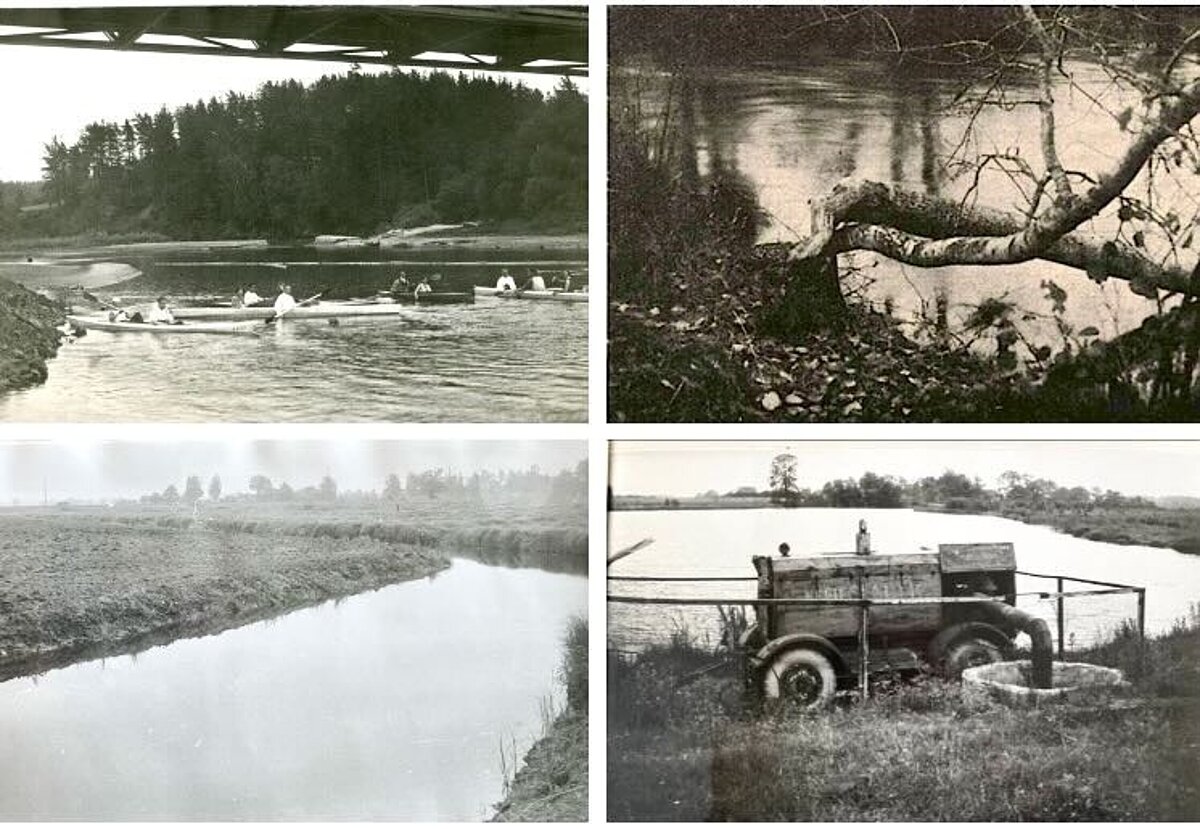
In the first part of the session, "Nature and Technology", speakers focused on hydraulic engineering projects in Latvia that have historically contributed to agricultural and energy development. Today, these projects are being reviewed from the perspective of ecological and landscape sustainability, with particular emphasis on the importance of restoring natural water flows and revitalising ecosystems. The papers discussed the political and technical aspects of river regulation, the ecological conflicts caused by the reintroduction of beavers, and the Heideggerian philosophical approach to assessing the impacts of technology and infrastructure development, using the example of the Ķegums HPP.
The second part, "Myths and Practices", looked at historical and cultural interactions with water. The papers highlighted the scenic and mythological representations of water in 16th-17th century Livonian texts, the development of laundry practices in the age of industrialisation, and the historical transformation of boating traditions and rivers as recreational environments.
The final part, " Care, Actions, Representations", focused on participation of citizens in water protection and management. The papers analysed the activities of the Latvian Society for the Protection of Nature and Monuments and the emergence of environmental activism in Latvia, including discussions on water cleanliness and pollution issues in the 1980s-1990s. The reflection of the Baltic Sea in contemporary art and the dynamics of public initiatives in the digital environment were also examined. From a hydrofeminist perspective, the case of the pollution and reclamation of the Olekte River was examined as an example of how environmental problems simultaneously reveal ecological, social and political inequalities.
The discussions in the session showed that water research is not only about natural or technological objects. In this section, we focused on the relationship between people and water itself - as historically and socially constructed, ambiguous, politically and discursively charged. It was emphasised that waters are not mere resources or landscape elements, but relational spaces where care, control, knowledge, conflict and collective imagination are intertwined.
Thank you to all presenters, participants and audience for their engagement and discussions!
The following speakers took part in the conference:
Kārlis Lakševics. "Infrastructing flows and circuits: competing modernities in water transformation projects"
Klāss Dzirkalis, Edijs Breijers, Anita Zariņa. "Infrastructuring and regulating rivers in the 20th century agrolandscape"
Anita Zariņa, Ivo Vinogradovs, Edijs Breijers, Mārtiņš Lūkins. “Controlled and Uncontrolled Waters: Beaver Reintroduction and Water Management Conflicts in Soviet Latvia”
Kristīne Krumberga. "Rivers as Recreational Environments: the History of Boating Water Tourism in Latvia"
Karīna Ješkina. "Environmentalism in Latvia: Caring for Waters in the LDPAB"
Artis Svece. "Discourses of Clean and Polluted Water in the Late 1980s and Early 1990s in Latvia"

 CONFERENCE
CONFERENCE